“… like a journey, a life requires that you learn to let go of the plan when the actuality departs from it.”
May 2025 - travel diaries - Mid-Atlantic Ridge, NYC, Portland, L.A., San Diego, Las Vegas, Denver, Detroit

Dear Friends of Fictions,
I finished the essay below a few weeks ago, when I was still in Detroit. (Gig schedule at the very bottom)
I’m currently in NYC (it's 4am) and a lot has unfolded—both in my own life and in the world at large. Maybe things have been just as intense on your end. So, to keep it brief: the main takeaway today—maybe of most newsletters I’ve written so far—is this: climate justice is social justice, mobility justice, land justice, and border justice. They're inseparable.
It is also my first time using Ghost in an attempt to leave Substack. Fxck fxscism.
xx
Nono
PS: quickly recorded audio version uploaded here on Soundcloud.
PPS: lectrices et lecteurs francophones, merci de répondre à ce mail pour me dire s’il est utile que j’inclue une version du texte dans votre langue ?
IT WAS TOWARDS April 28th that I finished the first draft of Surviving A Hurricane At Sea. We’d left France 2 weeks before, and I did not know then that it would take us another 2 weeks to moor in NYC.
Our boat had just crossed the Mid-Atlantic Ridge, and we were stuck in dead-calm waters. We sat on the deck and reminisced about the storm. A sailor confessed that it made them reconsider their vocation. And yet, they said, the sea is the only place they feel alive.
Someone quoted Aristotle: There are three sorts of people: those who are alive, those who are dead, and those who are at sea.
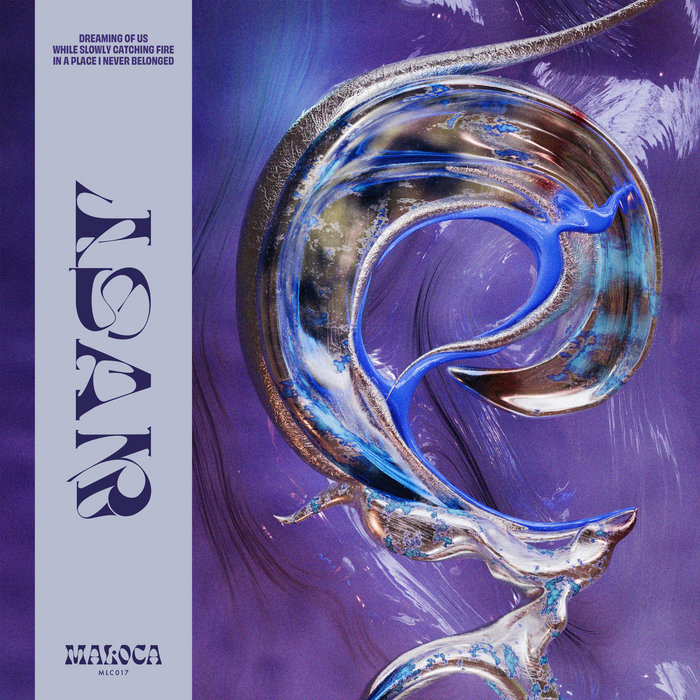
IT WAS A few days later that a fish was finally caught on one of the lines drifting at the back of the boat: a yellowfin tuna. The Japanese have a technique to kill prey that is said to be more humane. The quick insertion of a spike in the hindbrain of the fish causes immediate brain death. Ikejime supposedly preserves the quality of the meat by reducing stress and therefore the production of lactic acid and cortisol in the fish’s body. This is not how our tuna was killed. The crew carefully ate every piece over a few days.
Life aboard the Artemis was regular, yet eventful. A ricochet of events—some precipitated by the storm—kept on delaying our arrival. I was filling the pages of my notebook. A passenger once asked me what I spent all this time writing about. My official story on the boat was that I was making a pilgrimage towards a monastery in California. And there was truth to that.
“I guess I write about … life?” There was a pause before I added: “And death. I often write about death.” It struck me that there was truth to that too: how I wrote about Rob’s grave last July, reflected on rivers and no regrets in November, considered clubbing through the perspective of grief in February, and mused tongue-in-cheek about my tombstone in March.
I HAD NEVER been to the US and worried about crossing the border. I said nothing about being a musician, researcher or campaigner to my fellow travellers. I usually enjoy anonymity but to keep the full purpose of my passage and my anxieties to myself was, at times, slightly tricky. I replayed secret stories in my head, inventing other passenger’s hidden reasons for being on the vessel, imagining that I wasn’t the only one to carry a load.
To keep my emotional—and physical!—sanity, I started obsessively pacing around the ship multiple times a day whilst reading Mary Oliver’s poem Am I Not Among The Early Risers. It took me a few days to learn the poem by heart and it took me 2,25 rounds of our vessel to recite it out loud whilst marveling at the sails: as though sheets of water flowed over them though it is only wind, that common thing, free to everyone, and everything?
My rounds became one source of banter among the crew. Sometimes they’d be waiting at the kitchen window to give me an ola as I passed by. True to sailor superstition, one of them asked, half-joking: “Are you blessing or cursing our ship?” A captain remarked: “We’ve started factoring your rotations into our calculations—so let us know if you ever change your route.” (The space was so limited that virtually zero other itineraries were possible). Even the passengers joined in: “So, which hike are you taking today, Nono?” This one became like a child’s game—each day, they expected my answer to get more elaborate. “Just a little stretch of the Pacific Crest Trail this afternoon”, I’d say.
And off I walked: Have I not been ready, always at the iron door, not knowing to what country it opens, to death or to more life?
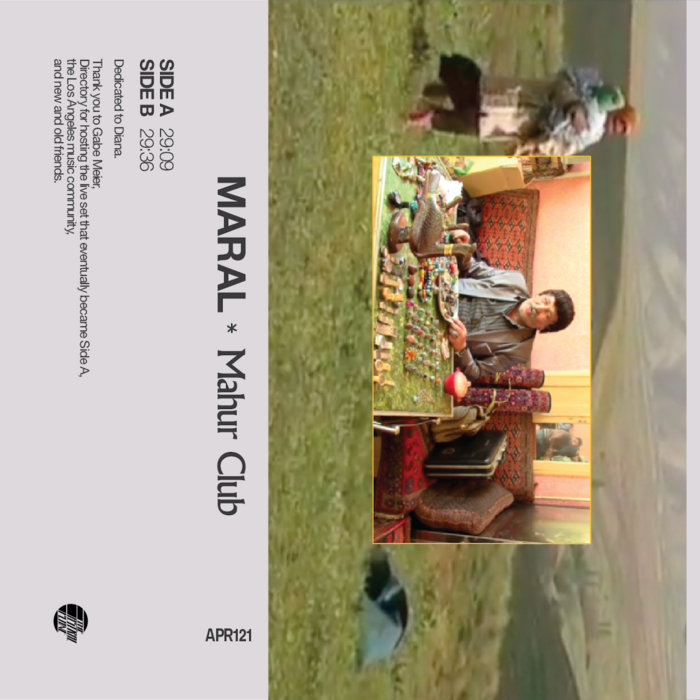
THERE WAS A version of this trip where I would have arrived in NYC on May 2nd, 17 days after embarking. After approximately 3 weeks, when my friends weren’t hearing from me, they found a vessel tracker and started checking it regularly. It reassured them to know my silence was neither related to the ship disappearing nor to issues at the border. Perhaps I’d mentally prepared them not to expect me back.
Before leaving Berlin, I approached many moments as if they might be the last ones, particularly careful to leave relationships in a harmonious place. I remember talking to a recent friend who is also a death doula and was taking part in the Spirit Rock One Year To Live Program. We agreed that facing the reality of mortality can be both daunting and profound—and that its potential to liberate requires discernment.
THERE WERE MULTIPLE versions of this trip where I would have played in Seattle. Shortly after I had been scheduled to play, the venue announced that it was closing indefinitely. Aside from the precarity of the whole project, my biggest worry was to fail the people who put so much energy into trying to host me. (If this is you and I haven’t been able to honor your invitation, please know how much gratitude I will hold for you, always.)
My connection with the Pacific Northwest city exceeded the music community. I’d been introduced, online, to the work of the King County International Airport Community Coalition (KCIACC), which works with long-standing impacted communities in the Allentown-Tukwila, South Park, Georgetown, Beacon Hill and Duwamish Valley Neighborhoods against aviation and environmental racism. I was hoping to meet the Duwamish, the ‘people of the inside’, a Native American tribe indigenous to the Puget Sound region of Washington state, particularly around present-day Seattle. When I started delving into their research on Clean Air, I learned that the life expectancy of the residents of the Duwamish Valley is 8 years shorter than the Seattle average, and 13 years less than the wealthier neighborhood of Laurelhurst in North Seattle. Additionally, the most vulnerable populations in Seattle — like children, the elderly, and foreign-born residents — live in the Duwamish Valley. Their first proposal is to reduce vehicle emissions, including trucks, cars and airplanes.

I HAD NEVER been to the US and I smelled the land before I could even see it. Before I’d spent 4 weeks at sea, I didn't know the earth had an odor.
Do you know what NYC smells like? Fried food. I know … Actually, I thought it specifically smelled like fries, and others voted for hamburgers, so eventually we all agreed on fast food. Only when we got near the port did we smell the pollution. French sailors said their ports smell like croissants. Of course, French people would never think less of themselves than perfume, patisserie and baked butter. However, all crew members aboard, whether Ivorian, Senegalese or even French, agreed that their favorite smells came from African coasts. “There’s nothing like it.”
We lowered the anchor off Long Island on Friday May 9th, 3 weeks and 3 days after leaving Le Havre, and waited for a spot in the port of Newark to open. This didn’t happen until Sunday, 2 days later. A pilot was brought to our boat with another one: a mandatory procedure to navigate any vessel into the complicated currents at the entrance of a port. I’d gotten so used to the 12 people I’d shared the last 4 weeks with, that I had forgotten the existence of other humans.
The Statue of Liberty looked small when she appeared to starboard. My anxiety grew larger. Just hours later, the coast guards boarded for face checks, and I was cleared to enter the territory—though inexplicably told to wait another night before disembarking. The path wasn’t open to everyone aboard. Some sailors weren’t permitted to set foot on land while the ship was in port. Their disappointment seemed mild, but I felt as if a small part of my soul had been amputated. So much for freedom, justice, democracy, and French-American friendship.
When I did my rounds during one of the last evenings, other folks aboard joined in. I was walking, reciting the poem (And while I waited, have I not leaned close, to see everything?), and a caterpillar took form behind me. Our community had morphed into one body. The caterpillar halted and we chatted about how our crew resembled a mycelium that was now going to spread across the earth. What sets mycelia apart is their ability to regenerate. Life and lives can and do embrace so many forms.
IT WAS TOWARDS the end of the Monday morning that an official car freed us from the port. I was only in NYC for a few hours. An express soundtrack to a blockbuster: sirens, accents and compressed reggaeton bassline blasting out of cars.
I dropped a bag at a friends’ place in Brooklyn and was already on the Lake Shore Limited train to the West Coast by 15.40. Had I not caught that 70-hour train journey, I’d have to cancel my gig in Portland too. I watched the sun setting over the Hudson River Valley with a certain sense of relief. I couldn’t afford a couchette, but the seats were comfortable enough to get a few hours of sleep before arriving in Chicago 19h later.
There, I hopped on the colonial-sounding Empire Builder line for 3 more days and 2 nights of train travel, another 3500 km towards the West. Having been offline for over a month, I spent the whole Tuesday trying to read and reply to digital correspondence. (A reminder: I don’t read DMs on social media but do my best to get back to other signal messages and emails.)
Everyone had a story of a loved one who got pregnant, a sibling who got sick, a friend who passed or of grieving the outrageous numbers of violent deaths occurring worldwide. I felt the human condition in sharp relief–a dense reminder that while we are all siblings in aging, illness and death, we are not all equal in how we are allowed to live, to suffer, to be cared for or to be mourned.
I HAD NEVER been to the US, and the first thing I did was cross its land from East to West–4700 km over the course of 4 days. I saw a lot of desert and odd tiny towns: one of them—Glasgow—described itself as the middle of nowhere. I’ll remember, always, the audible gasp that seized the panoramic car when we first caught sight of the Rocky Mountains. The train shot out of a tunnel and, like a magician trick, towers of rock suddenly sprang up, filling the windows.
Having thought for weeks about the complex Transatlantic heritage, I now felt like I was reluctantly retracting the footsteps of the early expansion and “pioneering” trails, a Transcontinental heritage. We crossed the rectangular borders of Wisconsin, Minnesota, North Dakota, Montana, Idaho and Oregon. In the 16th century, these were homes to Native American nations of the Inoka, Hookacra, Lakota and Dakota, Hinono’Ei, Apsaalooke, Niitsitapi, Ktunaxa and more. During and after European colonisation, an estimated 90-95% of the Indigenous population of the Americas died, a decline of hundreds of millions of people.

IT WAS AROUND noon on Thursday, 15th that N from Contact picked me up at Union Station in Portland. Minutes later we were having lunch and talking about N’s work in healthcare. “I would have burnt out long ago, had it not been for music”, N said. We reflected on the ways in which USians struggle facing their mortality. “Some people aren’t so good at talking about these difficult topics, but I don’t shy away from them.” There was a particular vitality about N, about the way they asked questions and related to others, shared music and existed in the world.
Process, the club I performed at that night, was a perfect medium-sized room with a great sound system and a welcoming community. I shared the bill with othrwrld and Pariah, whose mixing is always so precise, consistent and playful. Oh, how I had missed wriggling around to loud music … I was under the spell of this abundance of beautiful sounds, the PNW’s lush greenery and its elf-like inhabitants.
I slept a few hours in a real bed for the first time in 5 weeks—not a train, not a boat, not any other box moving through space. N dropped me at Union Station Friday around noon, joking that I seemed like a video game character they were sending off to the next level of adventure.

I HAD NEVER been to the US and my friends, especially the North American ones, kept asking for my impressions. What could I say, that had never been said, with a knowing look and a defeated tone, at any expat or middle-class dinner? Which sentences could I build that didn’t include immensity or disparity, expensive or extractive, plastic or convenience? Some days, I can only afford a single real meal and one day, it was a pickle in a pouch. Some food is not so good, but actually some of it really is. Surprisingly, the pickle was somewhere in the middle.
What could I add, that wasn’t documented in the headlines every single day? I constantly feel like I am in the belly of bad news. But so do I when I am in Germany, I guess. Except most of the people I encounter here are very friendly. Only occasionally, someone isn’t.
One thing however seemed to constantly want to come out of my mouth unfiltered: everything looks like in the movies. Promoters found this to be very endearing, as I pointed at the traffic signs, the charming houses in the suburbs or the flickering light at the corner of a motel. During the first segments of my US rail pass, I shared an entire wagon with a community of Amish people, and before my tired brain could figure what was going on, I had wondered what odd parallel reality or movie setting I had been trapped in.
As I was approaching L.A.—home to Hollywood and a core engine of the global imaginary—I thought it would be fitting to build this edition of the newsletter around a film rather than a novel, as I usually do. I started watching To Live and Die in L.A., smoothing into the slick scenes and all the bang bang, until the so-called “terrorist” muttered something along the lines of “Death to Israel and America, and all the enemies of Islam!” The offensive bad guy trope snapped me out of the spectacle.
I had a flashback to being on the boat, catching the binoculars every time the radar signaled another vessel. If the container belonged to a company like MAERSK, I couldn’t help but wonder, with rage and despair, what it was carrying. Was it sending weapons to Israel?
The thing about the U.S. as an empirical project is that, for centuries, it has imposed and exported—both culturally and literally—ideas about who is allowed to live and why, who is allowed to go where and how.
THERE WAS A version of this trip where my friend Faith Adiele and I would have driven the iconic Pacific Coast Highway from Portland to California, where Faith is based. We looked forward to reconnecting for the first time since we had met in Morocco during a residency in 2023. (Thanks to Faith and Aaron for helping out with this newsletter.)
Faith’s work explores issues related to decolonising travel. As I campaigned to decarbonise transport, we found we had a lot to discuss: our conversations often revolved around the ways in which wealthy tourists or artists tend to exoticize the places and people they visit.
After meeting Faith, I often wondered how guilty I was of being an Eat, Pray, Love protagonist myself. Perhaps this trip falls into that trap, too: had I not spent most of my 4 weeks on the boat eating copious amounts of rich food? And was I not headed to a monastery? And what does June have in store to complete the trilogy?
Ok, let’s stay focused! When I watched the televised version of Eat, Pray, Love, I remember being puzzled by the scene in which Liz, portrayed by Julia Roberts, meets Ketut and asks him if he’s ever been on a plane. The Balinese palm reader smiles and says: “Ketut cannot fly on airplane! Ketut have no teeth.”
If there’s a pun here, I still don’t get it. Perhaps it’s a western expectation of spiritual guides being mysterious or whimsical? Ketut is amongst the 80% of the world population who’s never set foot in an airplane. There could have been a version of the scene where he would have answered something like: “Ketut cannot fly on airplane; airplane is very expensive” or “Ketut cannot fly; Ketut have no strong passport.” Anyway, in the movie he says neither but adds instead: “When I die you will come back to Bali – come to my cremation.”

I HAD NEVER been to the US, nor had I ever seen the Pacific Ocean. It was during this stupendous 30h+ Coast Starlight train to the Southwest that we met for the first time. My body and mind couldn’t make sense of its reality. My bones knew, now, how vast and powerful the Atlantic was and, looking towards the Pacific, I whispered: but you, you’re even BIGGER! The encounter felt soulful but I couldn’t stop wondering what it truly meant or did to me.
In the last few years, I realized how since an early age, I’d been socialized into thinking there are certain things you need to have seen and done before you die. On some occasions, I was pressured into flying and one argument often is that You Only Live Once. It left me wondering not only what is worth living. I also began to question the implicit perspectives on time and space that underlie the pressure for a single body, within one lifetime, to consume as much of the world as possible.
In an essay published via Gen Dread, Trevor Lehmann considers how having a life-threatening illness at a young age has shaped his resolve to push for a just transition. He wrote: “I find comfort and meaning in the work of Roman Krznaric’s The Good Ancestor, which highlights that there have been many projects in this world that people pursued beyond a single human lifespan. (…) Rather than seeing climate as a problem that will not be solved in my lifetime, I see it as a source of conflict, struggle and ultimately meaning for both my generation and beyond to not only revitalize the environment, but create a more equitable world than we have ever known.”

THERE HAD BEEN a few different versions of this tour where I would have played in Los Angeles. Different dates, different promoters, different places. At some point, I even considered flying into L.A. and travelling the rest of the tour by land, taking a boat back across the Atlantic.
I don’t categorically exclude ever flying again. But I was pondering all this back in January and something felt wrong when I imagined myself making an exception to land on a territory that was experiencing deadly wildfires just as I was trying to plan different options for the tour. (Then again, L.A. isn’t the only place in the US affected by the climate crisis: according to analysis of US Federal Emergency Management Agency data, the country experienced 267 days of “major disaster” in 2024. That’s ¾ of the year.)
The failed L.A. attempts left room for a perfect coincidence. Our train arrived Friday evening with only a 3h delay. With too many short nights stored in my body, I took a bus to Canary Test, where I was lucky enough to catch Fast At Work’s Carré b2b Seyer before re:ni.
I have been obsessed with Carré’s recent releases on Woozy and Tempa. Stars seemed to align, since I was able to catch the California native on home turf. I had to take a bus at 2am from L.A. Union Station, so it was an express visit in a club and crowd that I found to be lovingly quirky, cozy and enthusiastic amidst the concrete jungle.
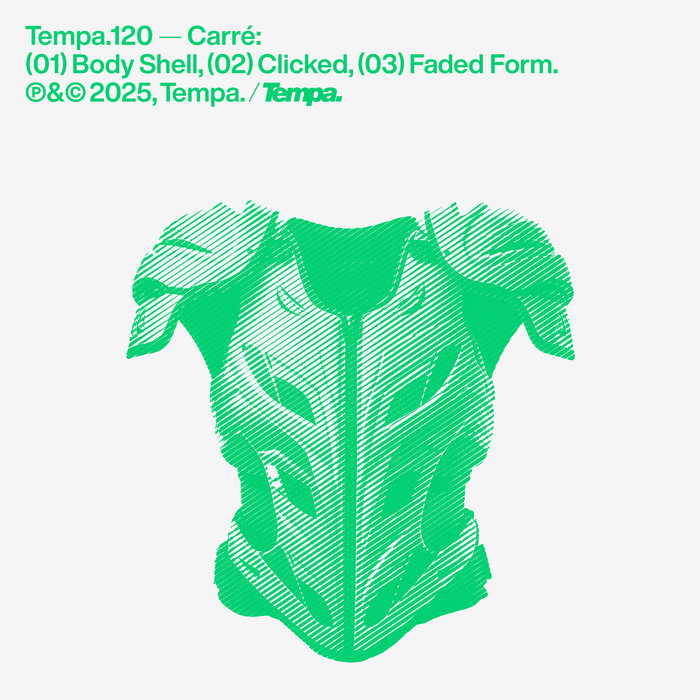
IT WAS AROUND 7am on Sunday that I set out to walk the 17 remaining kilometers between Valley Center Road and WAT Metta Forest Monastery. I’d just taken a coach, a sprinter and a bus from L.A. straight out of the club, trying to keep myself awake to avoid missing the stops.
My muscles had shrunk from 4 weeks at sea and 1 week on trains, and I was carrying a heavy load through hills and orchards. There was something sacred in the bareness of that section of the journey. I wanted neither to be driven, nor to listen to music. Instead, I focused on the chatter of squirrels and the swoosh of avocados tumbling onto dead leaves beneath the weight of their own ripeness. I wouldn’t arrive until 11am.
When you meditate, you’re getting practice in how to die well. Buddhists talk a lot about death and interpret it in different ways. But beyond the dharma disagreements, this focus is supposed to help nurture a sense of urgency about what we’re doing right here and right now. Ajahn Thanissaro writes that: It’s important to note that mindfulness of death does not take death as its primary focus. You don’t focus your thoughts on death, death, death. Instead, you simply keep an awareness of death in the back of your mind so that you can focus on the work that really needs to be done.
THERE WAS A version of this trip where I would have arrived at Metta Forest Monastery on the anniversary of Rob’s death, some versions where I would have arrived before Vesak, a few where I would have stayed 2 weeks. Not 4 days, as became the case eventually.
When you’re travelling, time progresses: you’re constantly thinking of where you’re going next. I was craving a break; I wanted to help out and care. I dreamt of putting the video game on hold and feeling part of something that transcended it, serving something that would survive it. I yearned to embrace a circular flow, put the linear one on pause.
We woke up at 5am, sat, cooked, chanted, shared the only meal of the day, cleaned, sat, weeded the orchards, sat, went to bed and did it all over again. We spoke little to not at all, though T told me about his dying parents who recently were displaced by the L.A. fires and Q (half my age) shared about finding his mum dead less than a year ago.
There is a sample in a Shackleton track that says: Death is not final, only a misunderstanding of time. When you live remembering that your loved ones, you and everyone you’ve ever met will die, you start to see that, like time, death isn’t just one thing—it can be many: an end, a step in a process, maybe even a beginning.

IT WAS AROUND 1.30 am between Thursday and Friday when I approached the Las Vegas airport on foot, contemplating the recent unexpected twist of events. Some hours before, P had dropped me at a gas station near Escondido, California (guess what our conversation had been about that afternoon? … d… d… yes, correct—death!). I took a shuttle to Las Vegas, which was so delayed that despite a high-speed-Fear-and-Loathing themed Uber adventure through the city, I arrived 5 minutes too late, just missing the Greyhound that was going to drop me in Vail, Colorado.
I sat on a bench at the bus station in the middle of the night assessing the situation: it was Thursday night and I was supposed to be playing in Denver on Friday and Detroit on Sunday. There were no more buses (let alone trains) to Denver, and I needed to catch my Detroit connection just after the gig. I was about to miss not one but two gigs. Hitchhiking is forbidden in Nevada, and I wasn’t quite sure I wanted to do something illegal in the dark—and the city of sin. Feeling defeated, I trudged the dusty highways towards the roar of departing planes.
In the last six years, I’d only been in airports for civil disobedience or picking up friends. I’d forgotten that they’re a cluster of all these rental car companies. I visited several desks asking for quotes, and before I knew it, I had made a deal with the cheapest one and was sitting in the driver’s seat of an American car: the smallest they had on offer, the largest I'd ever driven.
I messaged a friend who was waking up in Europe to say that I was about to navigate the 1,200km from Las Vegas to Denver, after having been awake for nearly 24h straight. Without waiting for a reply, I dropped my phone in the passenger’s seat and drove out of the airport and through the city—as if it were a normal thing to do, as if I could afford splashing out on a last-minute rental, or as if all of this were planned or familiar or even real. Debussy’s Clair de Lune resonated in my head as the lavish Bellagio Resort & Casino blinked in the window. A giant moon appeared in the background. It was fake. There was something oddly fascinating about the whole scene, something grandiose and tragic.
My friend replied: “Be careful. Take naps. Please don’t die.”
I HAD NEVER been to the US and resented all the fossil fuel I was burning as I drove solo. A few days prior to this unexpected road trip, I had read Rebecca Solnit’s piece about the Nevada environmentalist Anne Garett. In The Art of Arrival, Solnit wrote that like a journey, a life requires that you learn to let go of the plan when the actuality departs from it.
I crossed from Nevada into Arizona and took a 50-minute nap at a gas station as the sun rose. I kept myself awake by calling friends, until I got pulled over on the highway by a cop. It felt like forever while he checked my papers. Eventually, he leaned back through the window: “You’re going to Denver? You’ve never been on this road?”
“No, it’s beautiful.”
He handed back my passport and driver’s license: “Wait ’til you see—it only gets better.”
And he was right. (Still not loving the police, though.)
No more calls, so I listened to music. The Denver promoter recommended that legendary '70min of madness' Coldcut mix, which completely blew me away. When I heard the Joanna Law a capella on top of those 7th Plain (Luke Slater) chords, I started crying. I cried through most of Utah. And it’s a big big big beautiful state.
About Jo Anne’s death, Rebecca Solnit wrote that: she had a faint smile on her face when they found her, adding that the activist had walked all the way to the end of her journey and met the sunset on her feet.

IT WAS AROUND 22pm that I entered Denver, Colorado and dropped the car at the airport. I’d been driving for nearly 20h, stopping for a refill, a short nap, a wee or a peak at the grandiose landscapes. S picked me up at the airport—how often do I get to write this nowadays?! We had dinner with V. Despite the exhaustion, I immediately felt like I was reconnecting with family. The FreeRo x Sorted (Denver) connection was one of the reasons I did not want to miss my show in Colorado.
Soon after I arrived in the US, I found out that there were no more boats to sail me back home. I suddenly felt trapped on the continent, both literally and metaphorically, and fantasized about staying in Canada when my ESTA expires and several nooses tighten. I need to find a solution, need to find a new boat crossing the Atlantic Eastbound—any leads anyone?
In the meantime, home feels far and yet doesn’t. Seeing Arthur in Seattle, hugging Lauren in L.A., meeting new friends in Denver and later hanging out with Dan in Detroit all made me feel that home, just like time and death, can be many things.
THERE HAVE BEEN many versions of my coming to Detroit. Over a decade ago, when I started writing my PhD about techno, I was hoping to get a stipend to visit the city. At the time, I would have flown, but I couldn’t afford back it then and a travel grant never came. Only later did the commitment to grounded travel start to complicate the whole equation. I was invited to a music residency that would have given me access to the music studios at Submerge, but freighter boats stopped taking passengers after the Covid-19 pandemic, and the project I had applied for was no longer possible.
The train between Denver and Chicago was delayed, so I took a later train to Detroit which, as it happens, was also delayed. Approximately one hour after I was supposed to start my DJ set for Texture, my train pulled into Detroit. The Uber driver pointed out the Motown Museum as he sped to Marble Bar. Once again, I entered the club with a giant backpack and sleep deficit.
I have no idea if any of these sets I’m playing are any pleasurable to anyone who hears them. I’ve started thinking that this whole idea of pilgrimage, like the idea of imminent mortality, can be both liberating, and pretty daunting. Some people I meet on the way enjoy fantasizing about my next time here. I’ve stopped correcting them, not because I don’t want to come back—I do a little more every day—but precisely because I know I won’t. Trying to pay homage to the lands and communities that have birthed and continue carrying so much of the culture that keeps me alive is, at times, too delicate a duty.
A few minutes before I plugged my USB-stick that Sunday evening in Detroit, I pulled a tarot card, lit up some incense and I found myself wondering, again, if I were playing life or if life were playing me. Then the survival mechanism kicked in: space and time bent, I sensed what happens in between, movement.

THERE HAD BEEN countless possible versions of this whole journey. I learnt to shape it, walking on the edge of knowing it might simply never happen …
THAT I MIGHT never come to the US. About pilgrimages, Rebecca Solnit wrote that to travel without arriving would be as incomplete as to arrive without having traveled. It was only after days of dancing at Movement that I finally felt like I had arrived. Everyone said I would love the festival and it only sunk in when I actually experienced it.
IT WAS IN the evening on Monday, that I bumped into J during Return to the Source, No Way Back’s legendary party at Tangent Gallery. J said they all cried when they heard “Dan Bell's 7h sunrise set he does every Saturday for the Tresor party. He closed with Bill Withers - Lovely Day which was such a nice way to end the morning.”
At Movement, I felt reverence through all the places and people I interacted with: a sense of homage to previous generations combined with enthusiasm towards transmission and exploration, music was being pursued beyond a single human lifespan.
I’m still thinking about Mun Sing’s absurd genius theatrical performance after my set. I caught a bit of DJrum at Marble Bar, which was enough to remind myself that I still have everything to learn about DJing. I boogied to Lakuti & Tama Sumo in the horny garden of Tangent Gallery, zoned out to Patrick Russel & Sarah Wreath in the ambient room and danced hard to Gigi FM & Derek Paslaiko before CCL & Objekt’s Wormglow Venn Diagram closing set.
I spent a few more days in Detroit, refusing again to drive or be driven, walking hours at end through the wide streets of the motorcity, sometimes under the pouring rain, whilst listening to the entire Theo Parrish discography.
The drops on my lips tasted of salt and peace. It wasn't a relief that I’d checked down my to-do-before-you-die list. It was even less pride or a feeling of accomplishment. It was more like a deeper knowing, under my skin, that after I’ll be gone someone somewhere somehow will still be hearing music. This or that ocean will still be very big. The morning star will still be just as perfect.
It was a promise that after I’ll be gone, there is still the possibility that people will help each other out. That they could still host an absolute weirdo stranger who hasn’t showered in 3 days on their couch, pick them up when they missed whatever train connection and carefully cook them a nutritious meal when they haven’t eaten in 24h. They will still sneak a power bank, a good luck bracelet or some vegan cookies in her bag. They will occasionally check in, out of the blue, or send a track they ripped off an obscure record they think I might like and sometimes say something like hey I have a friend of a friend who could offer some acupuncture, just in case? And most often, they won’t ask absolutely f*cking nothing in return. It’s been possible, it’ll be possible again.
We did this!
13.06 - Dripping Festival - Sparta 🇺🇸
20.06 - Flow State, Green Machine, Night Logistics - Chicago 🇺🇸
21.06 - Humanaut at Hot Mass - Pittsburgh 🇺🇸
28.06 - TBA - NYC
04.07 - TBA - Montreal 🇨🇦
05.07 - TBA - Toronto 🇨🇦
⛵⛵⛵⛵⛵>>> help me find a boat back home so i can play my summer gigs <3
27.07 - Pe:rsona Festival w/ Wheel Of Fortune 🇫🇷
15.08 - TBA 🇫🇷
16.08 - Iota Festival, Île d'Oléron 🇫🇷
30.08 - TBA, Vienna 🇦🇹
31.08 - 53100 Festival, Siena 🇮🇹
11.09 - TBA 🇫🇷
trying to keep everything updated here
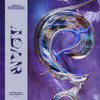
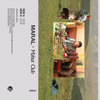
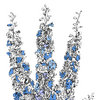

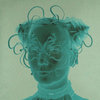
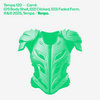
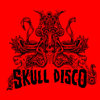

![Surviving a hurricane at sea [+ version française]](/content/images/size/w600/2025/06/690f7380-c312-4d98-9797-78460d825e69_2000x1011-jpeg-1.jpg)
